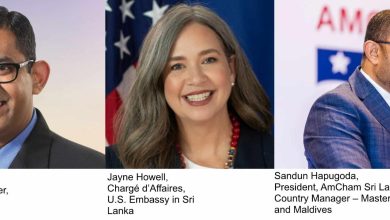NATIONAL PEACE COUNCIL
ENSURE MINIMUM CROSS PARTY AGREEMENT FOR POLICY STABILITY
The outcome of the forthcoming presidential election on November 16 is fraught with uncertainty with anxiety about the future. There is concern about both the continuation of policies on the one hand and the reversal of policies on the other hand, which reflects a polarized polity. Whether in economic development, health, education or reconciliation, government policies promoted by one government are abandoned by the successor government. This threatens to be the case even with international agreements which can have far reaching consequences. As a result Sri Lanka has not enjoyed the benefit of change with continuity which is essential for political stability and economic development.
The National Peace Council urges the presidential candidates to publicly pledge at this time that whoever wins the election, they will seek a minimum consensus between political parties with regard to those areas in which governments tend to reverse the policies of their predecessor government. They need to take the position that even though presidents change the state continues for national and international legality. This could be the non-partisan task they set for themselves before the dissolution of parliament for the general elections that are to follow. For a start, they could seek such minimum agreement on national security, economic development and constitutional reform so that whatever government is in power, they will build on the positive legacy of the government that came before and not engage in politically motivated policy changes.
There needs to be a process of consensus building on particular issues. Sri Lanka has failed for too long to turn the corner and to get to a new level of development that is sustained. This has been especially the case with the ethnic conflict which has been brought into focus time and again by politicians of all political parties in their quest for election victories. In particular, the new president who assumes power needs to function within the restrictions of power put in place by the 19th Amendment. The new president will need to utilize the moral authority he gets upon securing victory to build consensus on longstanding problems that remain unresolved keeping in mind that he will be the president of all Sri Lankans and not merely of the majority that voted him into power.





